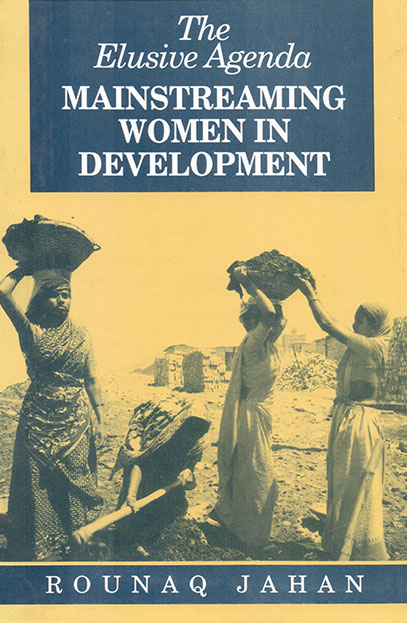
- Shop
- Gender Studies
- The Elusive Agenda: Mainstreaming Women in Development
The Elusive Agenda: Mainstreaming Women in Development
https://uplbooks.com/shop/9840512722-the-elusive-agenda-mainstreaming-women-in-development-6370 https://uplbooks.com/web/image/product.template/6370/image_1920?unique=90f5a49
| Language: English |
Tags :
Book Info
The growth of the International Women's Movement over the past two decades has challenged the international community to respond to its vision of social transformation. This book examines the response of one set of key players-- international donor agencies. It compares the donors' priorities with those of their development partners and argues that, although significant achievements have been made, the fundamental goals of the women's movement-transforming social and gender relations and creating a more equitable world- still elude us. Why has this progress been so elusive? How can we explain the contradictory trends- heightened advocacy on the one hand and the growing poverty of the world's women on the other? Rounaq Jahan has written a book which is both timely and necessary. Raising the critical issue of the distinction between strategies of integration and those of transformation will help to clarify the different roles of the national machinery for the integration of women in development, women's NGOs, and the women's movement. With clarity, Rounaq Jahan begins to unravel a central question in development cooperation: why is it that after two decades of work, gender issues have yet to become part of mainstream development? Her work responds to the pressing need which she identifies well: increased accountability of donors implementing gender-friendly policies and programs.

Rounaq Jahan
Rounaq Jahan, Distinguished Fellow, Centre for Policy Dialogue (CPD), Bangladesh was a Professor of Political Science, Dhaka University; Adjunct Professor, Columbia University and a Research Fellow at Harvard, Chicago and Boston Universities. She headed the women’s programmes at UNAPDC, Malaysia and the ILO, Geneva. Her publications include Pakistan: Failure in National Integration (1972), Bangladesh Politics: Problems and Issues (1980, 2005), The Elusive Agenda: Mainstreaming Women in Development (1995), Political Parties in Bangladesh: Challenges of Democratization (2015). She serves on the boards of several national and international organisations.


